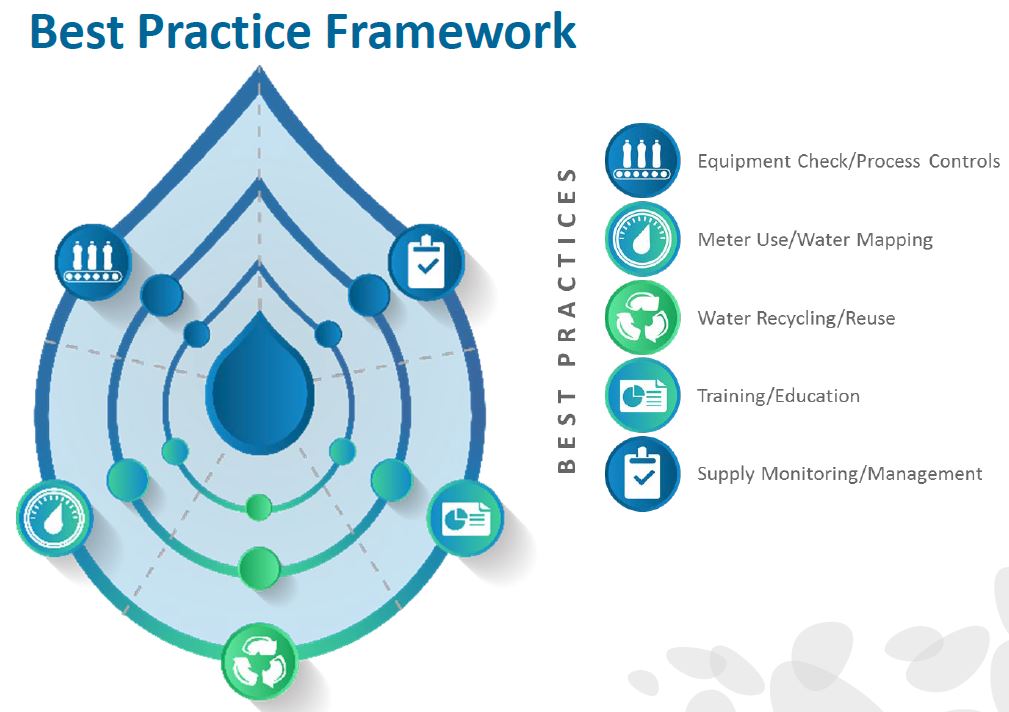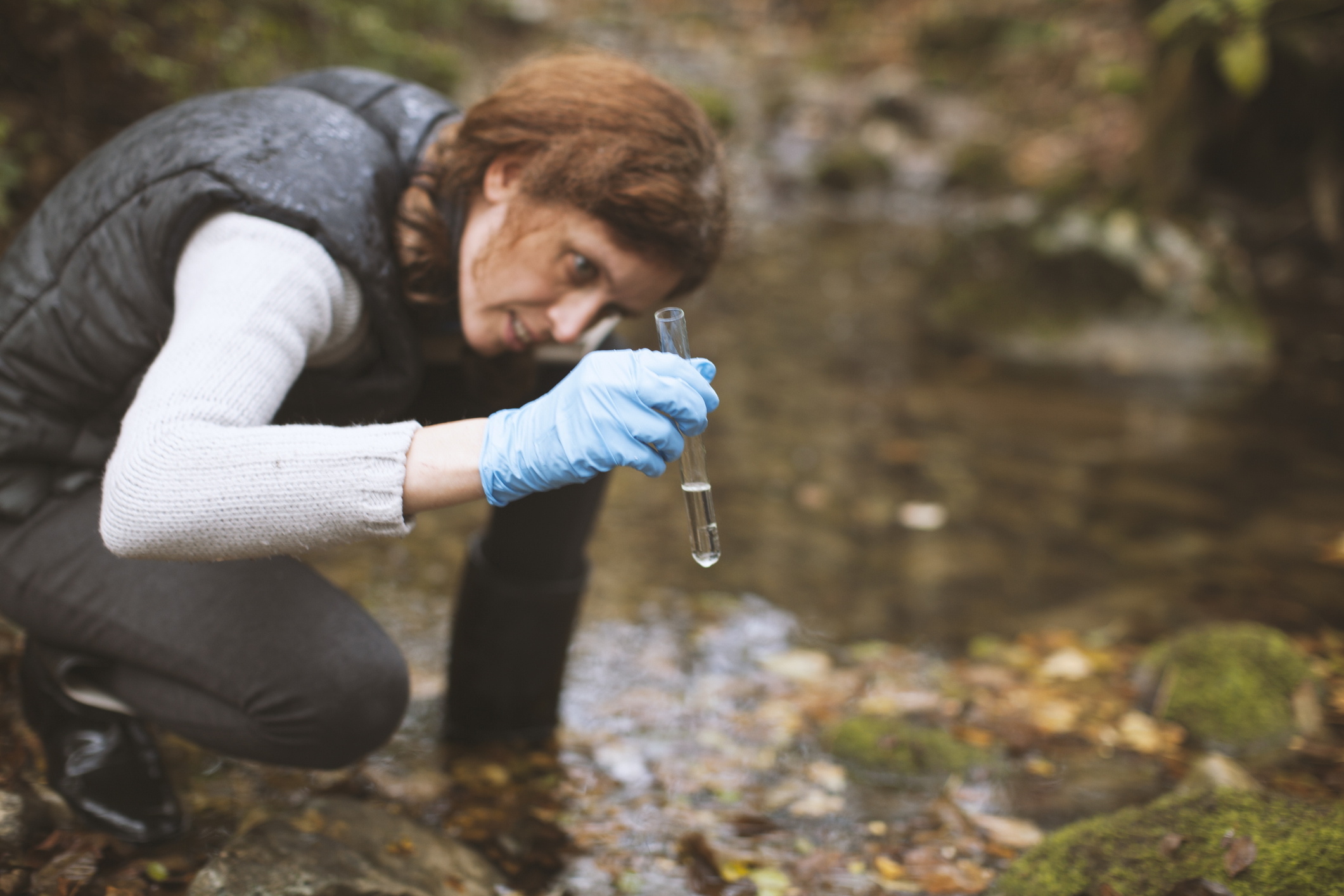Stewardship
Best Practices
water sources
know the facts about water use
industry water use
Water Stewardship Best Practices
Being a bottled water provider means you value your bottled water sources.
Water is essential for life. You can live for weeks without eating but only a few days without drinking. That’s why water for consumption is among the best uses of water. And it seems consumers agree, as they have made bottled water the No.1 packaged drink for five consecutive years. The bottled water industry is proud to provide consumers with the healthy hydration products they want and need — while also being steadfast in their commitment to be good stewards of the environment.
Best Practices Framework
An important part of being a good steward of the environment means that bottled water bottlers must continuously develop innovative and efficient ways to use and conserve their source waters. The International Bottled Water Association (IBWA) worked with the Antea Group, an international environmental consulting firm, to develop a Water Stewardship Best Practices Framework Guidance to assist all bottler members — regardless of production size or location — in the development of their water stewardship programs.
New bottlers in the process of implementing their water stewardship programs and established brands that have had more formal practices in place for decades can use the framework to evaluate their current state of operations and identify opportunities for implementation. The water conservation measures that bottled water companies can implement include the following:
- auditing total water use at bottled water facilities
- implementing water use restrictions at facilities
- managing water withdrawals in a manner that ensures the long-term viability of water sources
- reducing water extraction through improved water processing and bottling processes
- looking for leaks in all plant piping and tanks
- reducing water use when cleaning and sterilizing water pipes and storage tanks
- using efficient cleaning methods inside plants to reduce water usage when cleaning reusable
3- and 5-gallon bottles for water coolers used in homes and offices - using hydro-geological evaluations on springs to assess any potential impact on local groundwater
levels and stream flows - training employees to be good stewards of the environment and encouraging water conservation
- planting drought-resistant vegetation at bottling facilities
Best Practices Guide
IBWA also provides members with a Water Stewardship Best Practices Guide that incorporates elements of a universal framework for the sustainable use of water known as the International Water Stewardship Standard, or AWS 2.0 Standard. AWS stands for the Alliance for Water Stewardship, a global collaboration comprising businesses, NGOs, and the public sector. IBWA is an AWS member, working to contribute to the sustainability of local water resources by aligning its Water Stewardship Best Practices Guide with the AWS global standard.
No matter what source a bottler uses — whether municipal or groundwater — the AWS Standard seeks five outcomes:
- good water governance
- sustainable water balance
- good water quality status
- important water-related areas
- safe water, sanitation, and hygiene (WASH)
Implementing the AWS Standard can bring about many benefits for a site by supporting their efforts in the following:
- understanding water dependencies and impacts
- mitigating operational and supply chain water risks
- ensuring responsible water procedures are in place
- building relationships with local water-related stakeholders
- addressing challenges shared with others in the catchment
While the Water Stewardship Best Practices Guide helps IBWA members with their water stewardship programs, it also provides a basis for IBWA members to later seek certification to the AWS Standard, if they so choose.
IBWA Bottled Water Code of Practice
All IBWA bottler members that produce bottled water from a groundwater source comply with the IBWA Bottled Water Code of Practice, which sets out the following criteria for source water monitoring and protection:
- An evaluation of the chemical, physical, microbiological, and radiological characteristics of the source.
- A report on the regional geology surrounding the site and the specific site geology. A description of the vertical and horizontal extent of the source aquifer using existing data. The information will be used to define the recharge area of the aquifer, or in the case of regional aquifers, the zone of influence of the subject source.
- A report detailing the development of the source; the method of construction including spring design, well installation, surface catchment, and intake structures; and transmission facilities as appropriate.
- A watershed survey of the recharge area or zone of influence of subject source that identifies and evaluates actual and potential sources of contamination, and which shall be updated every three years, including any reported discharge that may affect the source.
- Based on the findings of the watershed survey, a plan for special monitoring of any significant contaminant source and for taking restrictive preventive or corrective measures as appropriate to protect the source water.


Bottled Water’s Vital Role During Emergencies
Bottled water plays a vital role in the lead up to and recovery from disasters and other emergencies. This video reminds people to take a moment to reassess their risks and update hurricane kits and emergency plans. Being prepared in advance of a threat means stocking up on emergency supplies such as non-perishable food, drinking water, batteries, etc., in sufficient quantities to last at least 72 hours. In fact, FEMA advises that the safest, most reliable emergency drinking water is commercially purchased bottled water and recommends at least 1 gallon per person per day, for at least three days.
LEARN HOW TO BE PREPARED
What do you now about the bottled water industry’s water use?
Are You a Water Wizard?
Did you know that bottled water has the lowest water use ratio of all packaged beverages? You did? Congrats! Take this quiz to see if you are truly a Water Wizard!